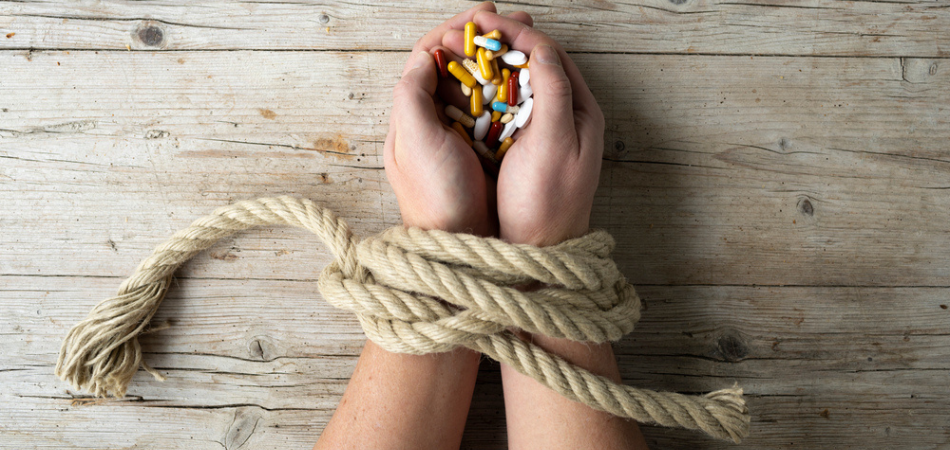Clonazepam addiction often begins with a prescription aimed at providing relief from very real and often overwhelming symptoms. Over time, higher doses are required to achieve the same therapeutic effect, leading to physical dependence.
The rise in clonazepam addiction reflects a larger trend in the misuse of prescription medications, a public health crisis that has escalated into epidemic proportions in some regions.

What is clonazepam addiction?
Clonazepam, also known as Klonopin, a benzodiazepine, is recognised for its high risk of addiction. This addiction can develop in just a few weeks, even with doses prescribed by a doctor. The drug works by blocking receptors in the brain, reducing anxiety and stress, and without it, those addicted cannot produce feelings of relaxation naturally. Addiction signs include:
Clonazepam operates by calming the brain and nerves through the enhancement of the effects of gamma-aminobutyric acid (GABA), a neurotransmitter that moderates the movement of nerve signals in the brain.
Causes of clonazepam addiction
Clonazepam addiction, linked to the medication brand name Klonopin, arises from a combination of factors, including both the drug’s inherent characteristics and patterns of misuse. It’s a central nervous system depressant with a high potency, making it effective for treating panic and seizure disorders. However, its euphoric effects can lead to psychological and physical addiction. Individuals may start abusing Klonopin due to its ability to produce feelings of relaxation and euphoria, often in an attempt to combat anxiety associated with other substance abuse or to enhance the effects of other drugs, a practice known as poly-substance abuse. This can escalate to serious health risks, including the potential for overdose and organ failure.
How common is clonazepam addiction?
Clonazepam was among the most commonly prescribed medications in the UK in 2021, indicating a significant potential for widespread use and, by extension, misuse. Its long-acting nature and the development of tolerance over time can lead to dependence, where individuals may require increasingly larger doses to achieve the same effects, further compounding the risk of addiction.
Symptoms of clonazepam use and addiction
Symptoms of clonazepam abuse or addiction often begin with the development of tolerance to the drug, necessitating increasing amounts to achieve the desired effects. This can lead to a cycle of misuse and dependency, even among those who initially follow prescribed dosages.
The short-term effects of clonazepam use include:
- Muscle relaxation
- Anxiety reduction
- Drowsiness
Misuse can lead to adverse effects such as:
- Dizziness
- Slurred speech
- Memory problems
- Confusion
Over time, these effects can escalate, leading to an addiction characterised by an inability to function normally without the drug, persistent cravings, and continued use despite facing negative consequences.
Warning signs that may indicate a loved one is abusing clonazepam include:
- Obtaining the drug through illicit sources
- Consuming it with alcohol or other drugs
- Doctor shopping to acquire multiple prescriptions
- Experiencing withdrawal symptoms when not using the drug
Additionally, misuse of clonazepam can lead to significant personality changes, affecting personal, professional, and academic interactions.
Treatment options for clonazepam addiction
Treatment options for clonazepam (Klonopin) addiction are diverse and aimed at safely and effectively addressing both the physical dependence and psychological addiction individuals may experience. The primary steps in treating clonazepam addiction include medical detoxification, the use of medications to manage withdrawal symptoms, and therapy.
Medical detox is sometimes helpful as it helps patients withdraw from clonazepam under professional supervision, reducing the risk of severe withdrawal symptoms or complications. Medications such as serotonin reuptake inhibitors (e.g., Prozac, Paxil) and anticonvulsant medications (e.g., Carbamazepine, Tegretol) can aid in managing symptoms during withdrawal. Melatonin might also be used to regulate sleep cycles disturbed by withdrawal.
Following detox, treatment often extends to inpatient or outpatient programs. Inpatient treatment involves staying at a rehab facility, offering 24-hour medical supervision, whereas outpatient programs allow patients to maintain their daily routines while receiving treatment. Cognitive Behavioural Therapy (CBT) is a common therapeutic approach focusing on identifying and changing negative thought patterns related to addiction. Counselling and support groups play significant roles in providing ongoing support and guidance during recovery.
Next steps
Recognising the need for help with clonazepam addiction is a vital first step towards recovery. It’s important to understand that addiction is a complex but treatable disease that affects brain function and behaviour. The process of recovery begins with reaching out for help.
Call our admissions line 24 hours a day to get help.
FAQ’s
Clonazepam is used to prevent and treat seizures, including epilepsy. It is also prescribed for panic disorders, with or without agoraphobia, and can help with anxiety disorders. Due to its muscle relaxant properties, clonazepam is sometimes used to treat muscle disorders or conditions with involuntary muscle spasms. Its calming effects make it effective in treating symptoms of anxiety and aiding in sleep.
Yes, clonazepam is addictive. It has a high potential for dependence and abuse, particularly with long-term use. Individuals may develop tolerance, requiring higher doses to achieve the same effect, which can lead to addiction. Withdrawal symptoms can occur if the medication is abruptly discontinued, indicating physical dependence. It is important to use clonazepam under the close supervision of a healthcare provider.
Clonazepam is legal in the UK but is classified as a Class C controlled substance under the Misuse of Drugs Act 1971 and the Misuse of Drugs Regulations 2001. It is available only with a prescription due to its potential for abuse and dependence. The legal status ensures that clonazepam use is monitored and regulated to prevent misuse and addiction.






